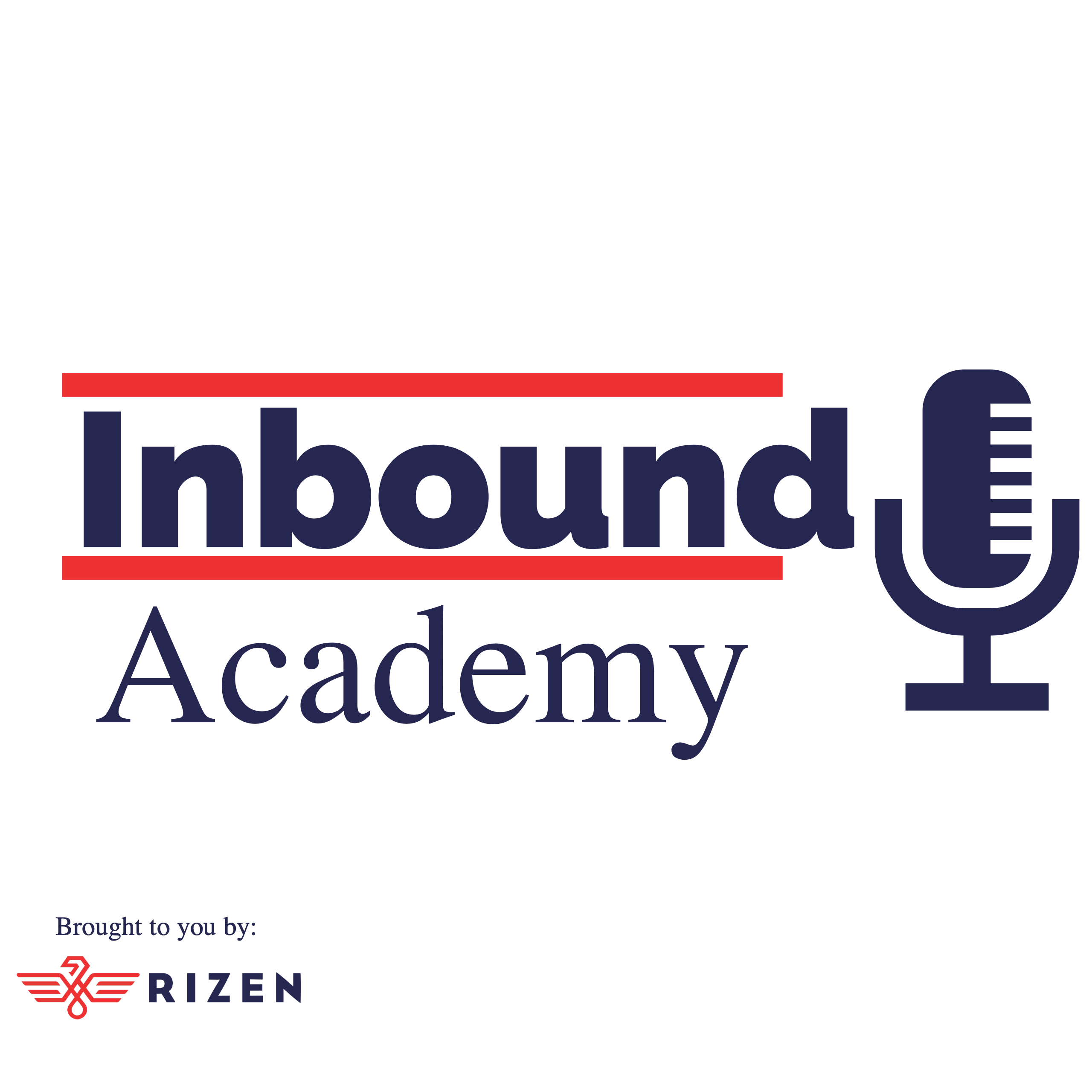Today on Inbound Academy we’re going to help you take your newfound inbound principles and craft a company purpose that both employees and customers will cheer about.
Episode Transcript
Jeff Lambert: Today on Rizen Academy, we're going to help you take your new found inbound principles and craft a company purpose that both employees and customers will cheer about.
Jeff: And thank you for plugging us into your car speaker, everybody. I'm your host, Jeff Lambert. We're continuing our inbound journey today and we're going to be talking about why you should draft a company purpose. Joining me to provide some tips and perspective is Rizen CIO William Avila. Will, welcome back to the show.
William Avila: Thanks for having me.
Jeff: So let's talk about company purpose. And we know that inbound is what Rizen, your company, is founded on. It's all about making your company easy to find. That's the backbone of inbound, so people can get help with what they're searching for to solve their problem. So, in developing a company purpose, how does that help an organization be able to reach a better inbound goal?
William: Sure. Well, I think you, people need to understand that the company purpose is suppose to portray what the company was founded to do. And this messaging is important for employees and customers, having that message clear, really helps ensure that the organization is following its actual purpose. And if there's ever a kind of deviation, you always go back to this purpose.
Jeff: And do you think that a company purpose helps just in the basic sense of being able to get everybody on the same page in your organization?
William: Yeah, yeah, absolutely. Let's say your company, you do only design, right? But then suddenly start going from design to creating booths, right? Like trade show booths, which involve design, but then you started trying to manufacture them and then you start moving away from what you were really good at, which is design, right? You see, companies and agencies start doing different things to generate revenue, because they need an additional revenue source, but you use the company purpose to kind of hone in on the task that you want to take on, the products you want to take on versus the ones that you don't. It keeps you focused and ensures that your employees and customers are focused as well.
Jeff: So Will, I think our listeners who own a business, they're familiar with a mission statement and they probably developed one for their company. What makes this, company vision, different from a mission statement?
William: The difference is, is that this is your "why." Why does your company exist? What are you doing for other people that's truly making a difference? And having a clearly identified purpose helps marketing sales and services. And it really, really helps the customers and team understand the overall picture of the company. It's a very important differentiation between the mission statement and company vision. Definitely.
Jeff: Well, maybe it will help some of our listeners to expand on that. Give some examples of some companies that have really good company purpose statements. Do you have any examples you can provide of that purpose and action?
William: Yeah, I took the liberty of kind of just looking at some that I like personally. There's some simple ones like Kickstarter, right? Kickstarter's is "To help bring creative projects to life." So that's simple, right? Then you have the Walt Disney company. Everybody knows Disney, and they want "To be the world's leading producer and provider of entertainment and information using their portfolio of grants to differentiate it's content, services and consumer products."
Jeff: So both of those lay out a company purpose. Do you have any other good ones to mention?
William: Yeah. We have Rizen. Ours is "To help tech-savvy companies grow." There's also Google. "To organize the world's information and make it a universally-accessible and useful." So those are some of the ones that I've decided to share with everybody.
Jeff: So you can definitely hear the "why" in a lot of these company purposes that you mentioned. So when companies sit down to try and answer that "why" and when they're developing that purpose statement, do you have some steps that they should keep in mind when they're trying to develop this?
William: Yeah. Make sure it inspires your staff to do good work for you. I would also say find a way to express your organization's impact on the lives of the customers, clients, students, patients or whoever you're targeting. And you really want them to feel it. If they feel it, you know you're in the right direction. So those are, those are my two.
Jeff: Would you say that the goal of the company purpose should be to create some sort of emotional response?
William: Yeah, you should. As much as possible. Definitely. You know, some things don't enlist as much emotion. There are some companies that are boring! But you know, definitely, you know, as much as possible, it's definitely a very, very important that you keep that in mind.
Jeff: Well Will, thank you for coming by today and being able to share some of these steps so some of our listeners can start being able to develop their own company purposes.
William: Thank you for having me.
Jeff: And to our listeners, thank you so much for joining us again today. You can expect a new episode every weekday, always no longer than 10 minutes and filled with advice that's going to help you grow your business. And remember, if you're looking for an experienced, friendly and results-driven team to help you, check out Rizen by going to gorizen.com. You can also follow them on Facebook, Instagram, Twitter, and Linkedin by searching for the username RizenInbound. That's one word, Rizen Inbound. We'll see you on the next episode!
Want to stay in the know?
Join us, and get all the podcasts and more straight to your inbox.



.jpg?length=600&name=045%20-%20YouTube%20Cover%20Art%20(Video).jpg)


No Comments Yet
Let us know what you think